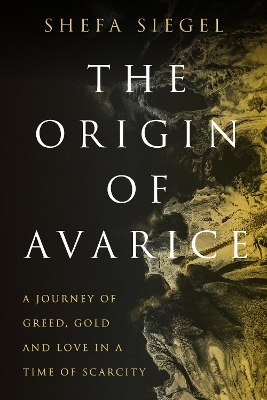
The Origin of Avarice
Allen Lane (Verlag)
978-0-7352-4436-8 (ISBN)
- Noch nicht erschienen (ca. April 2025)
- Versandkostenfrei innerhalb Deutschlands
- Auch auf Rechnung
- Verfügbarkeit in der Filiale vor Ort prüfen
- Artikel merken
Ever since the Greek and Roman historians speculated on the seemingly ever-growing violence and greed of the world, metal has been to blame. We have gone from a “golden age” of peace and shared plenty, to an “iron age of bloodshed and conquest.”
Today, according to geologist Shefa Siegel, we are threatened not by metal, but by its absence. Metal that once lay close enough to the surface of the earth so that primitive miners could more or less chip off what they needed is now so scarce that entire landscapes are pulverized to extract a fine dust of precious, powdered ore. As Siegel writes: “This is what scarcity looks like: not the end of mining, but its endless expansion.”
Having travelled to the semi-legal mines of the Third World, Siegel realizes the heartbreaking ecological and human devastation he witnesses is evidence of a more general cultural failing—a mindless turning-away from what truly matters. Mining and the scarcity that drives it seem to him a symptom of a world bent on self-destruction. Grieving the loss of his beloved uncle, a chainsmoking, elderly Manhattanite who devoted his life to words and ideas after fleeing the horrors of mid-twentieth century Europe, and half-broken by the ugliness of the metallurgical world he is reluctantly a part of, Siegel seeks healing in Italy. In Florence, and on the island of Elba, he encounters the history of European mining, from the Etruscans, through the Romans, to the Fascists of the twentieth century, piecing together a legacy of violence and greed. But he also finds himself in a world of natural beauty, of nourishing culture and music.
In a work of far-reaching scholarship and a deep fascination with history and culture, Siegel traces the shift in human perspective from the balanced view of nature held by the Etruscans through to the commodification and exploitation we think of as normal today, and hints at a path out of the madness.
SHEFA SIEGEL’s research covers topics such as global governance, mercury pollution, and conflict in informal economies. He teaches global politics and runs the Global Affairs Speaker series at Lester B. Pearson College of the Pacific. Previously, he was a research-scholar at UBC’s Liu Institute for Global Issues and the Columbia Center on Sustainable Investment. For more than a decade, he worked as a practitioner in international cooperation, specializing in resource governance, economic development, and the environment. Siegel has worked in fifteen countries and published essays, articles, and reviews about environment, mining, religion, and music in Ethics & International Affairs, Americas Quarterly, Haaretz, Environment 360, The Tyee, and Sojourners.
| Erscheint lt. Verlag | 8.4.2025 |
|---|---|
| Zusatzinfo | LINE DRAWNGS ON CHAPTER OPENER |
| Verlagsort | London |
| Sprache | englisch |
| Maße | 152 x 229 mm |
| Gewicht | 540 g |
| Themenwelt | Geisteswissenschaften ► Geschichte ► Regional- / Ländergeschichte |
| Geisteswissenschaften ► Geschichte ► Teilgebiete der Geschichte | |
| Naturwissenschaften ► Biologie ► Ökologie / Naturschutz | |
| ISBN-10 | 0-7352-4436-7 / 0735244367 |
| ISBN-13 | 978-0-7352-4436-8 / 9780735244368 |
| Zustand | Neuware |
| Haben Sie eine Frage zum Produkt? |
aus dem Bereich


